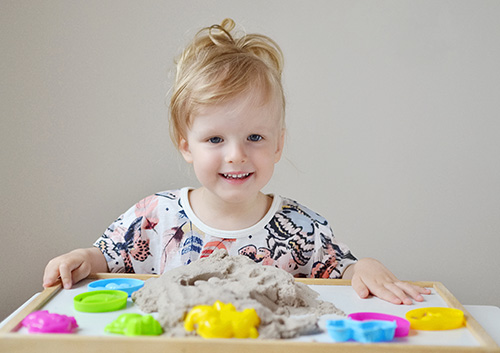September 29th, 2021

Sealants offer many benefits, but the best is their ability to protect your molars. Molars are full of small caverns that can be the perfect breeding ground for tooth decay and plaque buildup.
Use of protective sealants prevents this buildup from happening. Although children often receive sealants for routine preventive care, they aren’t the only ones who can benefit from this treatment. Sealants can also help adults who have deep canyons or grooves in their teeth.
They are commonly placed on the rear molars that tend to suffer the most decay. Because your molars are used substantially as grinding surfaces, food is more likely to be trapped among them.
Sealant solution consists a composite material that contains bonding agents that seal the top of your teeth. The process is quick and painless, which makes it a great solution for both children and adults who have had trouble with cavities and tooth decay. Sealants also last for several years, and repair is a simple process that can be completed by Dr. HJ Turner and Dr. DJ Turner.
The process of putting sealants on teeth starts with the tooth getting cleaned. We clean it with a type of baking soda spray called sodium bicarbonate. Then acid is etched onto the teeth to rough up the surface.
We apply an alcohol-based liquid to dry the area where the sealant is supposed to go. After it completely covers the surface of the treated teeth, the sealant is cured with a light that makes it hard and long-lasting.
Getting sealants can prevent the possible restorative costs that come from cavities. Sealants help to protect your tooth’s enamel from harmful acids and prevent decay, which can be an investment in itself. The whole process is quick, so it should be easy to schedule an appointment at Pediatric Dentistry of Spartanburg.
Feel free to call our Spartanburg, SC location and we can answer any questions you have about this service.
September 22nd, 2021

At Pediatric Dentistry of Spartanburg, we know that brushing your toddler’s teeth can be an intimidating prospect. So we’re providing a few tips in the hope of making the process a lot more easy, effective, and all-around enjoyable for everyone!
Start by getting into a position that gives you control and enables you to see well into your child’s mouth. If you can see clearly, you will be able to maneuver the toothbrush better around your son or daughter’s mouth for a better quality of brushing.
It’s important to choose a time when your toddler is calm. Have your little one sit with his or her favorite stuffed animal, or play a fun movie in the background so your child can focus on something comforting while you’re brushing.
Using a circular motion, brush all sides of their teeth. Be sure to let your toddler have a turn after you’re done, to start getting used to it. This way, he or she is more likely to repeat the brushing and flossing exercise when your youngster is old enough.
Dr. HJ Turner and Dr. DJ Turner and our team agree that brushing and flossing need to be performed with kindness and care. To ensure your child learns good dental hygiene habits early on, be gentle and make this time a happy, learning time.
Your child should also have regular appointments at our Spartanburg, SC office for checkups and cleanings to keep on track!
September 15th, 2021

It’s common for toddlers to be wary of strangers, but their first experience at the dentist shouldn’t be a scary one. Dr. HJ Turner and Dr. DJ Turner and our team have five tips for you to make your child’s first visit to Pediatric Dentistry of Spartanburg easy as pie!
- Bringing your child to one of your own appointments before his or her first dental visit can calm your little one’s nerves. This gives your son or daughter the opportunity to get familiar with our office and see a cleaning isn’t very scary.
- Our big dental chair can be fun! Toddlers love games, and seeing the chair go up and down can make it seem like an amusement ride rather than sitting down for an exam.
- Dr. HJ Turner and Dr. DJ Turner and our team hand out cool toothbrushes and stickers to kids after their appointment. Your child will love the fun-colored toothbrush and can look forward to a post-appointment prize at the next visit.
- Schedule your appointment for a time that sets you up for success. Bringing your child to our Spartanburg, SC office an hour before he or she is due for a nap may be a tantrum just waiting to happen.
- Kids love books! Try reading your toddler bedtime stories about what happens at the dentist before you come in for the appointment. We recommend Dora the Explorer’s Show Me Your Smile, written by Christine Ricci.
September 8th, 2021

It’s gratifying to know your child has good oral hygiene, especially starting from an early age. We know it can be difficult to get your son or daughter to brush those tiny teeth, let alone brush them well enough, every day. Dr. HJ Turner and Dr. DJ Turner and our team are here to give you some tips on how to help your youngster learn excellent oral health habits.
Your child should brush his or her teeth at least twice a day in order to prevent cavities and decay. An grownup may have to assist with flossing or using mouthwash. Always make sure your little one doesn’t swallow toothpaste or mouthwash in the process.
Only buy alcohol-free mouthwash, especially if you have young children in your household. Oral healthcare should be made fun from the start, to create good habits!
Helpful Tips
- Set a good example. Brush your teeth with your children and make it fun! Pick a two-minute song to play while brushing and dance along to it.
- Make it a race to the bathroom to see who can get the toothbrush and floss out first.
- Use a sticker sheet. For every night your children brush well, give them a sticker. After they’ve earned certain number of stickers, they win a reward. Let them pick it!
- Let your child check your brushwork, or try letting your youngster brush your teeth!
- Allow children to play with a toothbrush if they want to. They can brush their favorite stuffed animal’s or doll’s teeth before bed as well.
- Let your child pick his or her own toothbrush or toothpaste from a range of options you provide. Kids might pick one with their favorite cartoon character(s) on it, for example.
- Get a two-minute brushing timer your child can flip over when he or she starts to brush. Your son or daughter can watch the sand fall until it’s empty, which notifies the kid it’s time to stop brushing.
- Buy special children’s mouthwash that is colored to stain the areas of the child’s mouth where he or she needs to re-brush for effectiveness.
- Be gentle when your little one makes a mistake like forgetting to brush, and remind your son or daughter about the importance of good oral health in a fun, loving way.
There are plenty of ways to make brushing your child’s teeth more fun and effective. When Dr. HJ Turner and Dr. DJ Turner and the parents work together, we can help establish good oral health habits in children that will last a lifetime.
Take the trouble to set a great example for your children, and they will follow in your footsteps. If you’re concerned about your child’s oral health, contact our Spartanburg, SC office and schedule an appointment with our team.











 Website Powered by Sesame 24-7™
Website Powered by Sesame 24-7™
